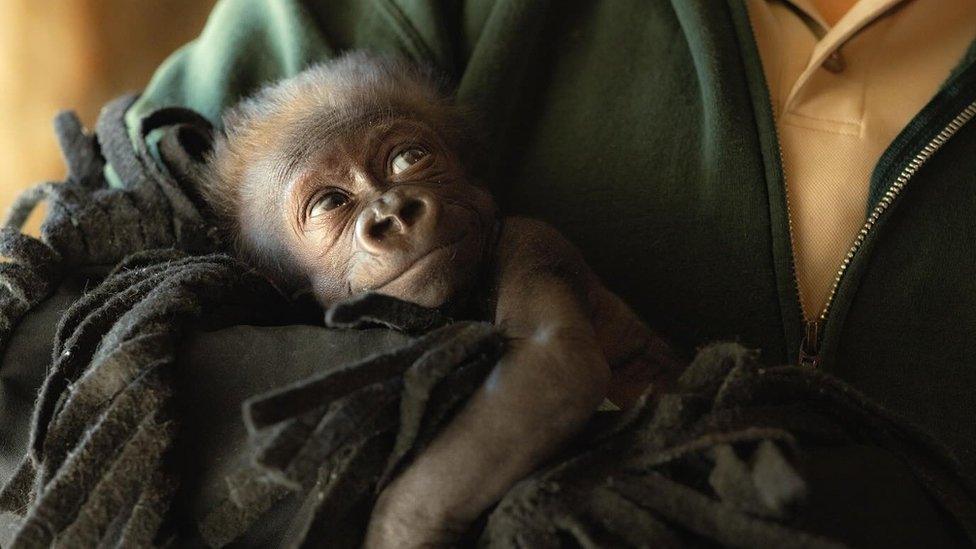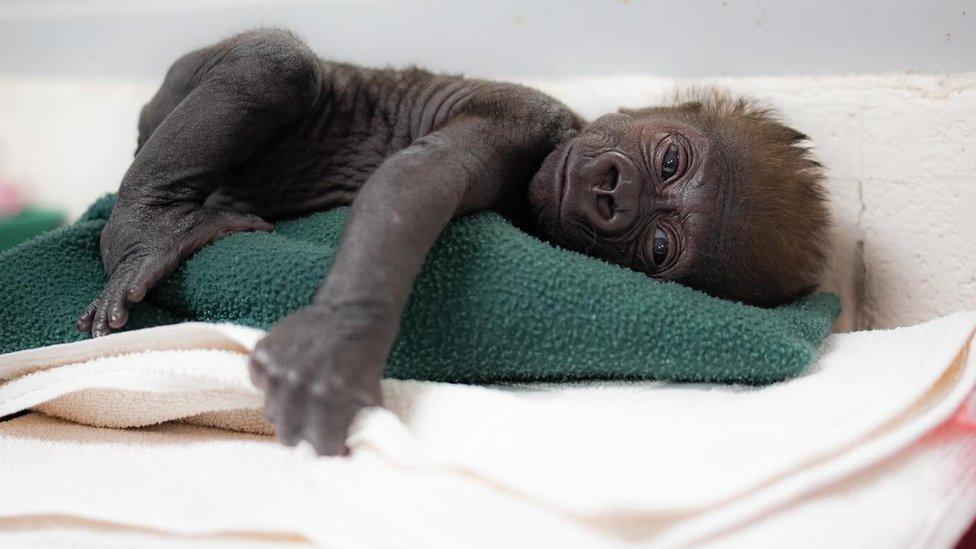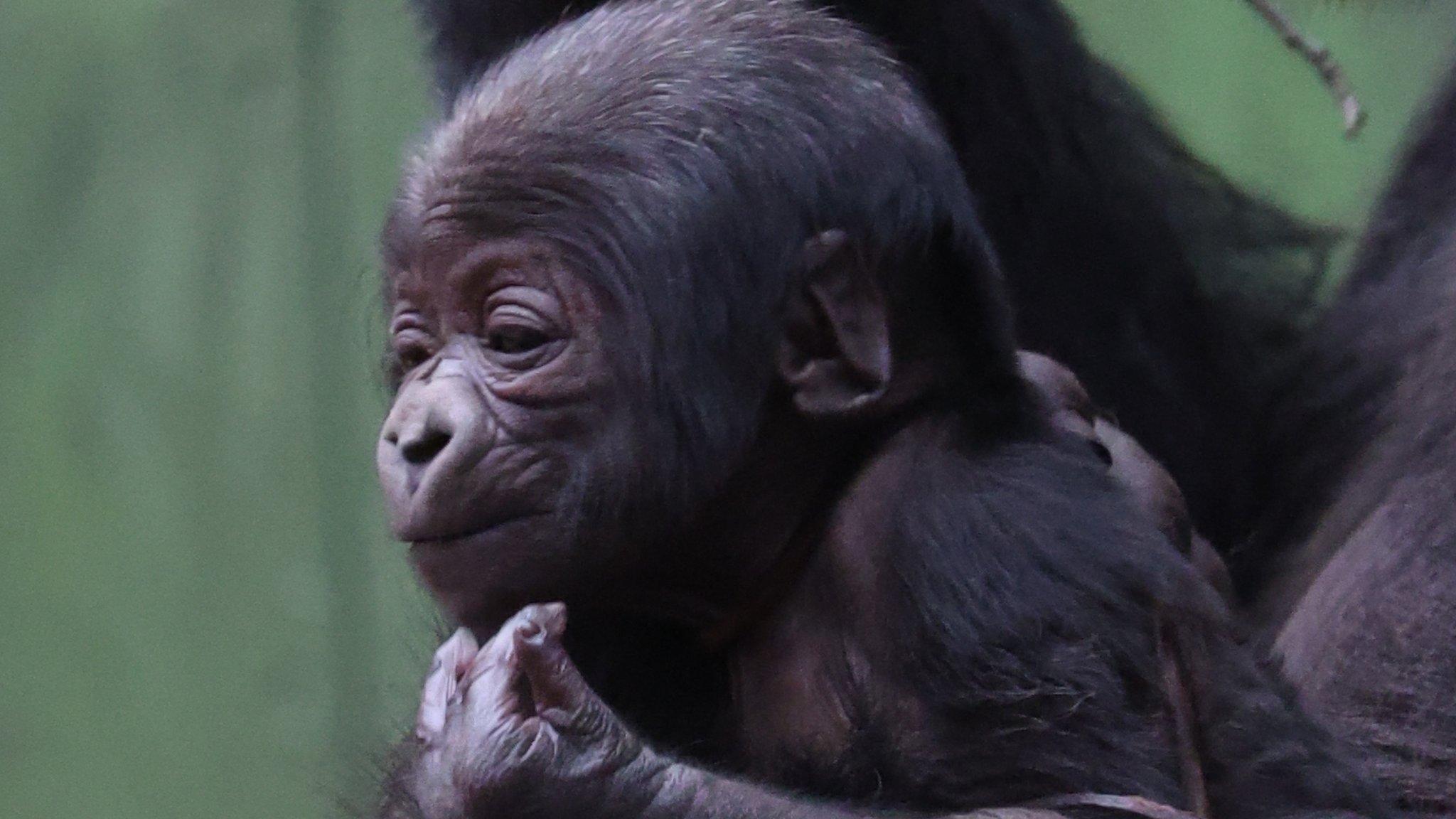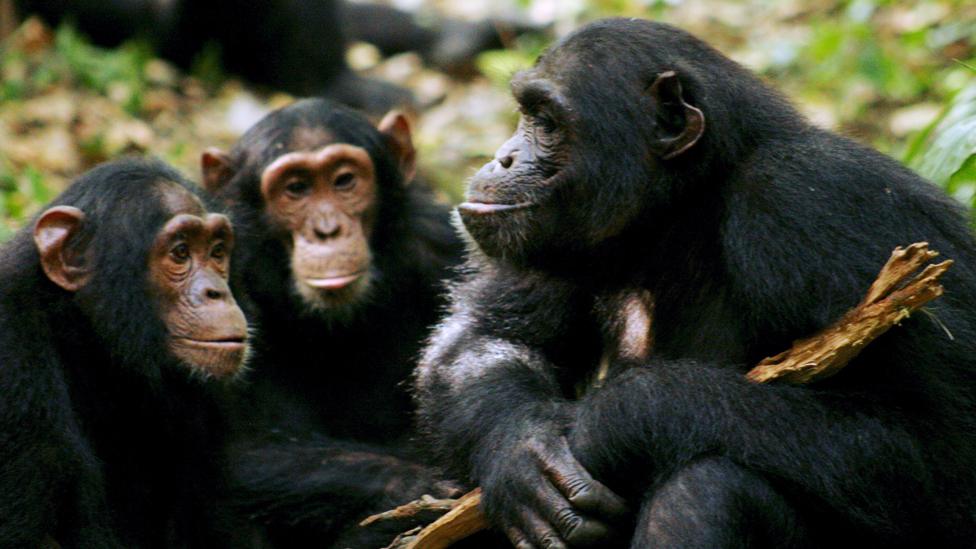Texas zoo delivers baby gorilla via caesarean section
- Published

Jameela is reportedly "thriving", says the zoo
A premature baby gorilla was delivered via emergency caesarean section at a US zoo after its mother suffered from a medical issue called preeclampsia.
The "historic and emotional" birth of Jameela was documented by the Fort Worth Zoo on its Facebook page.
The young primate was born four to six weeks early with the help of medical specialists.
It is the first gorilla to be born via caesarean section in the zoo's 115-year history.
Jameela - which means "beautiful" in Swahili - was born to 33-year-old Sekani, a western lowland gorilla, on 5 February, the zoo announced in a Facebook post on Valentine's Day.
It was Sekani's fourth pregnancy, but this time, the zoo's veterinarians sensed that she was exhibiting signs of preeclampsia - a serious blood-pressure condition that can happen during pregnancy in both humans and primates.
After confirming Sekani's diagnosis, the zoo said its veterinarians consulted with a local obstetrician and determined that a caesarean section was needed to save both the mother and the baby.
Western lowland gorillas like Sekani are native to central Africa, and are listed as critically endangered due to hunting and disease, according to the International Union for Conservation of Nature.
Their numbers have declined by more than 60% over the last 20 to 25 years, according to the World Wildlife Fund.
Gorillas also have a low birth rate, making it difficult for them to recover from population decline.
Jamie Erwin, the obstetrician, said delivering Jameela was one of the highlights of her entire career.
"I was amazed at how Sekani's anatomy matched that of my human patients," Dr Erwin said in a statement.
Jameela required immediate medical care due to her early birth, zoo officials said.

Jameela required immediate medical monitoring and attention as she was born four to six weeks premature
Neonatologist Robert Ursprung helped assist with resuscitation and stabilisation efforts, as well as putting together a meal plan for the baby.
"It was incredible how similar this mother-infant pair was compared to what I see in the hospital for babies born under similar circumstances," Dr Ursprung said.
"The baby needed critical respiratory support for a few hours post-delivery, but as she transitioned to life outside the womb, she stabilized quite nicely."
The zoo said the mother, Sekani, has since made a full recovery, but has not yet warmed up to her new baby.
"Despite repeated attempts to reunite the mother and baby, Sekani showed little interest in caring for her baby," the zoo said.
They added it is difficult to know exactly why the mother and baby are not bonding, but zoo experts suspect it is because Sekani did not experience the hormonal cues that could come with a natural, full-birth term.
Staff have since shifted their focus to training another gorilla, 24-year-old Gracie, to become a surrogate mother to Jameela, who is now "thriving".
- Published14 February 2024

- Published25 January 2023
